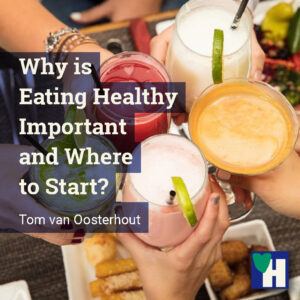
Why is eating healthy important? In these days of confinement this question gets far more attention. That is because to sit at home all day comes with the imminent risk of over-eating and under-exercising.
It takes quite some self-discipline to eat healthily and to stay in motion when locked up inside four walls.
But what is ‘to eat healthy’? Does this mean that we have to eat healthy foods and drinks? Most dietary professionals also suggest certain food consumption behaviors. For example, we need:
- To chew our food well
- Take and mark our time to eat
- Drink enough water
- Eat fresh produce
- To vary what eat from one day to the next
Related: What is the Best Time for Supplements, Water and Food?
Table of contents
What is eating healthy?
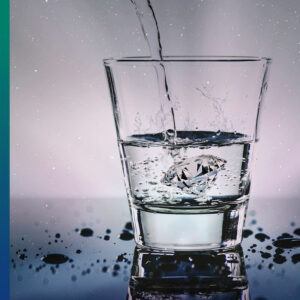
Of course, most of us already try to balance our intake of calories, vitamins, carbohydrates, and proteins. Some of us follow specific diets. Such as the ketogenic or the paleolithic diet. We think it’s worthwhile to study all those diets and to try them.
Take your time to pick an diet that suits you best. However, it’s also good to be lenient with ourselves. It’s no problem to incorporate a ‘cheat day’ in our dietary habits.
What is healthy?
In this article, I would like to focus less on food, and more on the subject of health. Because what exactly means health in ‘healthy food’? There are many people who tell us which foods and drinks are supposed to be healthy. However, do they also explain how we can experience that we’re healthy?
We think that before we are able to improve our health, it’s good to know where we stand. What is our health at the moment? How can we find out? How do we know how healthy we are? What is healthy anyway?
Health is not merely the absence of disease
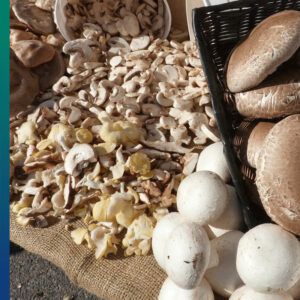
The World Health Organization of the United Nations (WHO), defined health for the first time in 1948. The WHO described health as ‘a state of complete physical, mental and social well-being, and not merely the absence of disease or infirmity.’
During the many years after the introduction of this definition, it caused a growing anxiety amongst health professionals. The discussion gradually centered on 2 issues. The first was the ambitious character of ‘complete wellbeing’. The second issue was that the definition was not able to incorporate changing disease patterns.
Complete wellbeing
‘Complete wellbeing’ is a rather ambitious goal. However, this goal was probably never implied in 1948, as we understand it today. The healthcare industry was not that sophisticated as at present.
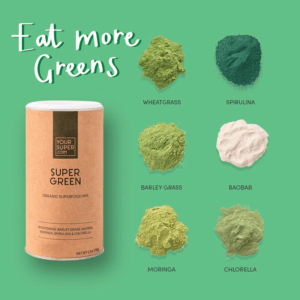
The ambition of ‘complete wellbeing’ incites the risk that we start to believe that when it comes to our health, we depend ‘completely’ on the healthcare system. Another objection is that ‘wellbeing’ is a subjective, personal state of feeling.
Changing disease patterns
The second issue with the WHO-definition is that it does not incorporate changing disease patterns. In 1948 those who died, usually died of ‘acute’ illnesses. At present, we survive with one, but mostly more, chronic diseases.
This second issue is, however, somewhat flawed. It’s based on rather shaky grounds. The average life-expectancy in the Western World already started to rise way ahead of 1948. For instance, in The Netherlands already from 1870 and onward. This was mostly due to better food. Later, but with far less impact on our health, life-expectancy also rose due to sanitary provisions and healthcare improvements.
Is our health sacred?

The contribution of our healthcare system to our live-expectancy has always been relatively small. Although, I admit, it’s nice to be able to visit a doctor when we’re ill. We should be aware though that this does not by itself contribute to a higher life expectancy or more health.
At present, the WHO uses a totally different definition of health. Health is ‘an integrated biopsychosocial model of human functioning and disability’. However, this new definition is so complicated that only professionals understand it.
This new definition also focuses on health as the absence of disease. We don’t think that health is ‘merely the absence of disease’. So this again raises the question: what is ‘health’? This question is even more important because we want to know whether all the efforts we take to ‘eat healthy’ will pay off.
Perhaps our subjective feelings of well-being, should be considered as a proper health dimension. This opens, however, a totally new Box of Pandora. Extensive and longitudinal research shows that we already connect our health with all of life’s activities. We gradually became to think our health is sacred.
Healthier lifestyles
The question is of course how subjective feelings affect our everyday behavior when it comes to our health. Take, for instance, obesity. Obesity is often directly linked to food consumption.
The problem for obese people is that they are often reproached for their lack of self-discipline. However, reproaches don’t offer any support. At the contrary, they make obese people feel patronized, humiliated, and powerless.
However, even when the intentions of obese people are to improve their health, how much and what kind of support is offered them from, for instance, the food industry?
Take for instance companies that pre-produce food, such as pizzas or cereals. They are not allowed to claim that their food is healthy. Since probably no food-processing company will state that their food is unhealthy, we have to figure out ourselves the health consequences from the mandatory information on the packaging.
That is quite time-consuming. Besides, we often need a looking glass to be able to read the usually very small texts. Even when we’re able to decipher the ingredient codes, the overall question remains: is this healthy? So, in the end, we must draw our own conclusions.
However, much more is possible to tackle obesity. First needs to be analyzed which habits and institutions cause an obese lifestyle. The results of this analysis should be used to secure small and large changes, which support a healthier lifestyle.
For instance, food-producing companies must be coerced into using less salt, sugar, and saturated fats. And supermarkets should be totally rearranged to prevent binge buying of cheap and so-called fast-food.
Related: The Quality of Food Determines Life Expectancy
Why is eating healthy important?
Eating healthy is good for our overall health and feeling of well-being. It is satisfying to be able to take our health into our own hands.
Eating healthy is in fact simple and cheap. From our own experiences, I must say that eating healthy is something that we are able to manage ourselves. If we take small steps it is not too complicated. It even economized our budget. And we feel much better. We also took our time. After each step, we monitored how we felt.
Our monitoring process was much easier when we started to keep a diary. Nothing fancy, we just wrote down in our own words what we ate and drank, what our first observations were, and a couple of hours later, we tried to explain why and how it made us feel then.
Slowly we noticed changes in our eating habits and our budget. We experience every day, for instance by not using any salt or sugar, our food tastes so much better. And we feel really good about it. Just give it a try.
What is your way of eating healthy? Tell us in the comment box below.
Some of the links are affiliate links. As an affiliate associate, we earn a commission when you purchase any of the products offered through the shared links at no extra cost for you. This helps us maintain this website.

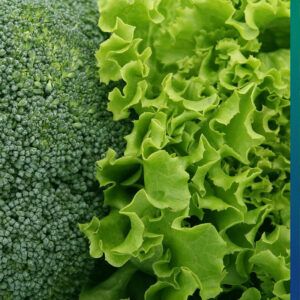
Interesting, this made me think. Being healthy is indeed not just the absence of disease, but it’s our overall wellbeing. Achieving a general wellbeing physically and mentally and socially is not always that easy. Socially, it can be hard, depending on the people you are surrounded by or live in your neighborhood, and you can be physically be in great health but still struggle with depression for example.
Chewing our food well is important. It feels horrible to swallow something that isn’t well chewed or is still too hot to eat. I always aim to drink enough water every day, between 1.5 and 2 liters, but there are days when I slip. I guess they could be called “cheat days” 😉 Water, however, is something I can’t slip up with (haha, sorry, I didn’t realize I wrote an accidental pun here), so when I know that I didn’t drink enough water on one day, I make up for it the next day.
Hi Christine,
Overall it’s important, I guess, that we try to ‘listen’ to our bodies. What do we feel and how do we feel? There is no problem in eating or drinking one day more, or less, as the next. A healthy life balance takes a life time habit. That’s also the fun of it.
The problem with health is that it’s a boundless concept in the public mindset. We tend to link our health with everything that we do and experience. The way we try to cope with the SARS-CoV-2-virus and COVID-19, the disease that’s the result of the virus, let alone the so-called pandemic, are fine examples of this.
At the moment we’re over a year into the panic-pandemic. It’s still not solved. Everybody thinks that with the vaccin the virus will disappear. This is not happening, and will never happen. The virus will adapt and re-enter through the backdoor.
What we need is medication to fight the disease, when, and only then, people get seriously ill. Most people who are infected, don’t even notice they are, and never get ill. 98% of those that end up in the ICU’s are people who are already very sick of other ailments (they have a high co-morbidity). Of course, that these people get so life-threateningly ill, is very unfortunate for them and they need are comfort and sympathy.
But what is it we do? We deny them just that very little what we can do for them: their loved ones are not allowed to assist them during their last – not so very glorious – moments of their lives. This is inhumane.
Fortunately, we’re still okay. Although the confinement, the lockdown, is taking too long. Moreover, because there is not any reason for this. We just have to cope with it.
For now, stay safe, stay healthy.
Regards,
Tom
In the past couple of years, I wasn’t paying any attention to my eating habits, so I gained weight super fast, especially when I was diagnosed with the polycystic ovarian syndrome. My doctor told me I should lose the extra weight and start eating healthier. I started a keto diet program. I bought meal plans from experts online and did some exercise following coaches on youtube; it helped me a lot. I will probably stay on this diet and see how it goes.
Hi Maria,
Thank you for your comment. You have a wise doctor. To lose extra weight and eat healthier is always good.
Whether a keto diet is a healthy diet, remains to be seen. The risks of a keto diet are substantial: constipation, high cholesterol, growth slowing (depending your age of course), acidosis (increased acid in the blood), and kidney stones (partly caused by the acidosis).
Another issue I have with the keto diet, is that it often contains fat dairy produce. I do not eat dairy, because dairy disturbed a natural and healthy digestion of food.
I hope though that you can seriously profit from the diet and stay well.
Regards,
Tom
Life today is speedy, and that’s the biggest problem for our health in general. At least in my opinion. People are working 2-3 jobs. We’re trying to do everything as quickly as possible. I think that leads to many other problems, and one of them is food.
Like I said, life is very speedy, and many people don’t have time to cook, so they eat in fast food or just cook something unhealthy because it’s cheaper and quicker.
The best way to change that is to change our habits. One of the ways is to prepare healthy food in your free days. That’s what I like to do, and it works great for me. That’s my way of eating healthy. If I don’t prepare food for my work, I’m limited to choose pizza or hamburgers because I can’t buy anything else at my work, haha.
Hi Petar,
Thank you for your comment.
In The Netherlands, the trade unions started actions to improve the food at work. But the members started to protest because they couldn’t buy pizzas and hamburgers and French fries anymore. 🤣
In the university where I used to work the students pressed for better food choices. They also wanted organic and vegan food. Still, there were also a lot of students, and faculty members, who only wanted fast food.
The distance between the production and consumption of food has become too large. Most of the students at the university had never seen a real cow or a strawberry in the field. Most of them don’t even know how to prepare food themselves. They can’t even fry an egg.
My sister couldn’t when she left home at 17 to go to work as a nurse. I was always in the kitchen to help my mother with cooking, or I went out to buy the groceries. I still love to cook. And try new things now and again.
For now, stay safe, stay healthy.
Regards,
Tom